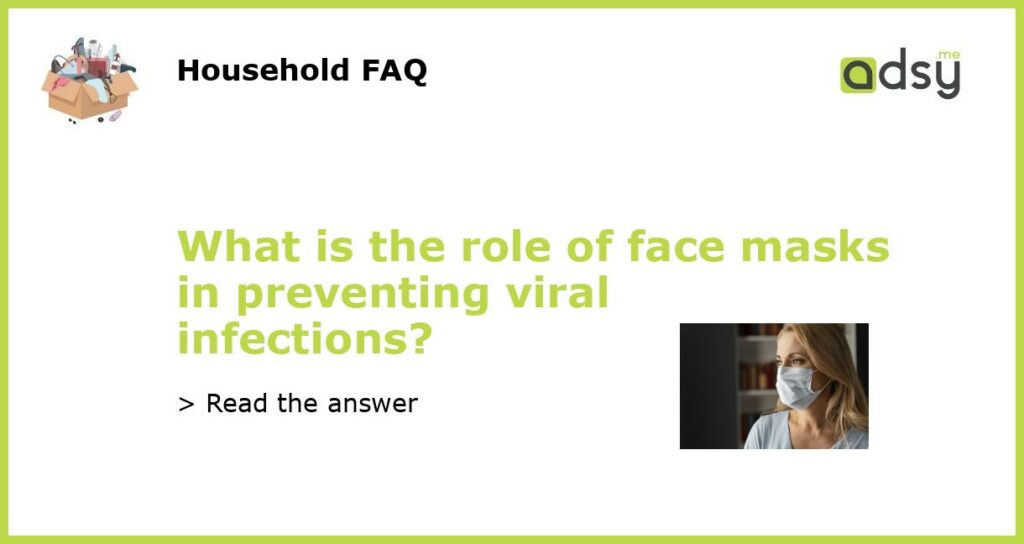The Basics of Face Masks in Preventing Viral Infections
Face masks have become an integral part of the healthcare industry. They are used as a protective measure to prevent transmission of viral infections, such as COVID-19, flu, and other respiratory illnesses. Face masks lower the risk of contracting or spreading viral infections. In this article, we will cover the basic principle behind face masks and how they help in preventing viral infections.
How Face Masks Prevent Viral Infections
The primary function of face masks is to protect the wearer as well as the people around them. Face masks create a physical barrier between the user’s mouth and nose and the environment. When an infected person speaks, sneezes, or coughs, they release respiratory droplets that can infect others within six feet. A face mask traps these droplets and protects others from breathing them in. The mask also prevents the user from touching their mouth and nose, potentially transmitting the virus from the hands to the face.
Types of Face Masks and Their Effectiveness
There are different types of face masks available in the market, including N95 respirators, surgical masks, and cloth masks. N95 respirators are the most effective for protecting against viral infections as they filter out 95% of airborne particles. Surgical masks provide a lower level of protection but are still effective in reducing the transmission of larger respiratory droplets. Cloth masks are the least effective but can still reduce the spread of the virus. It is essential to wear a face mask that suits your needs and follow the guidelines provided by healthcare professionals.
The Importance of Proper Use and Disposal
Wearing a face mask is only effective if it is used properly. Before wearing a mask, clean your hands with soap and water, or alcohol-based sanitizer. The mask should cover the mouth and nose and fit securely around the face, without any gaps. Avoid touching the mask while wearing it and remove it from the ear loops or ties. Dispose of the mask safely, and clean your hands immediately. It is essential to use a new or clean mask every time and avoid wearing a damp or soiled mask, which can be a breeding ground for germs.
Conclusion
Face masks play a crucial role in preventing the spread of viral infections. They create a physical barrier between the wearer and the environment, trapping respiratory droplets and reducing transmission. However, wearing a face mask is only effective if used properly. It is essential to choose the right type of mask, wear it correctly, and dispose of it safely. By following these guidelines, we can all do our part in preventing the spread of viral infections.






